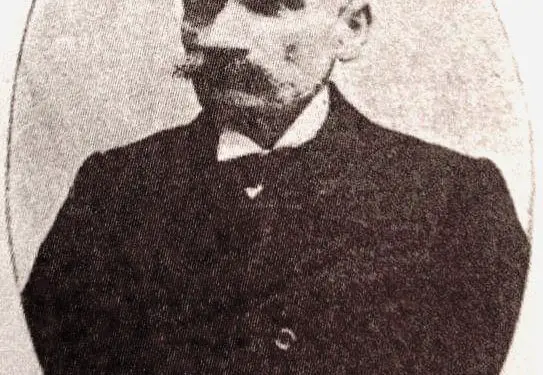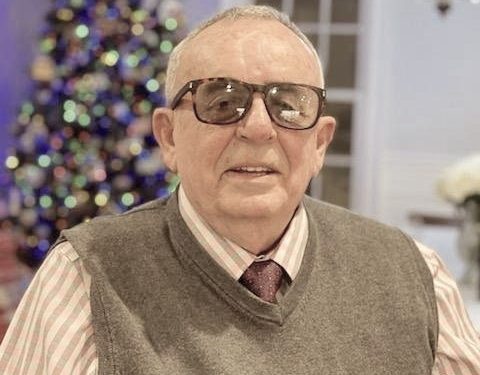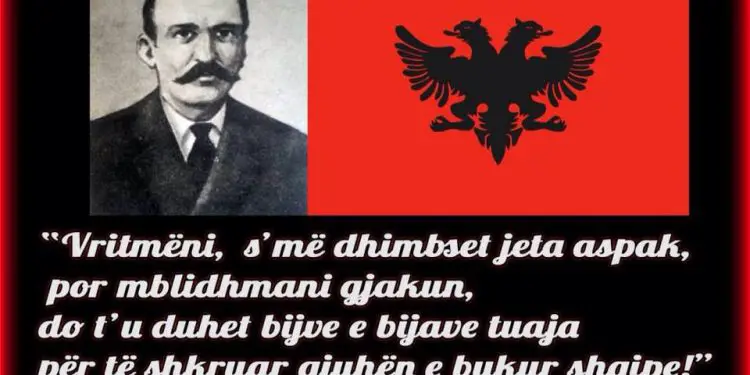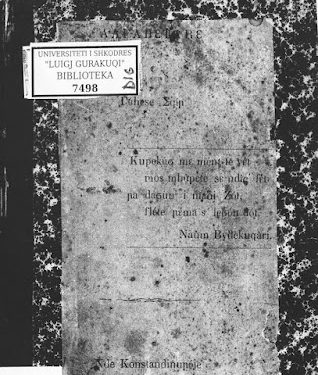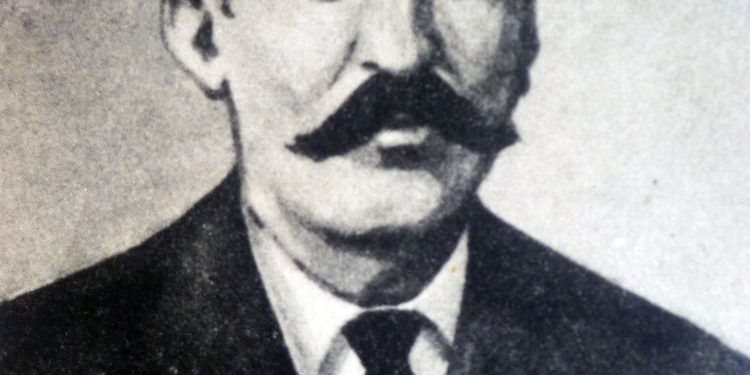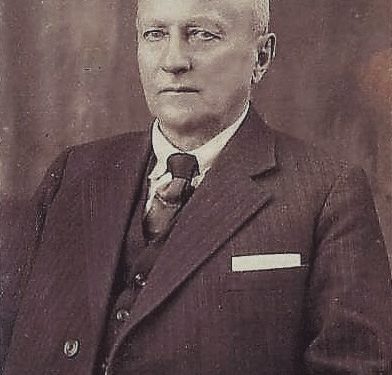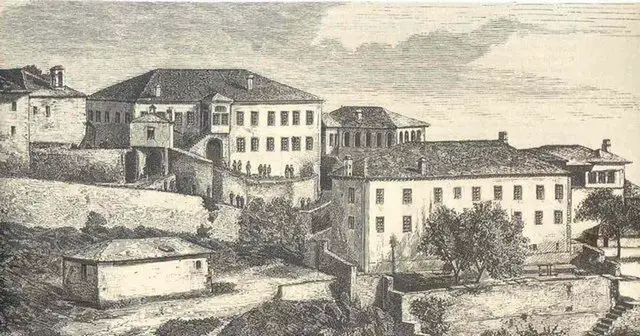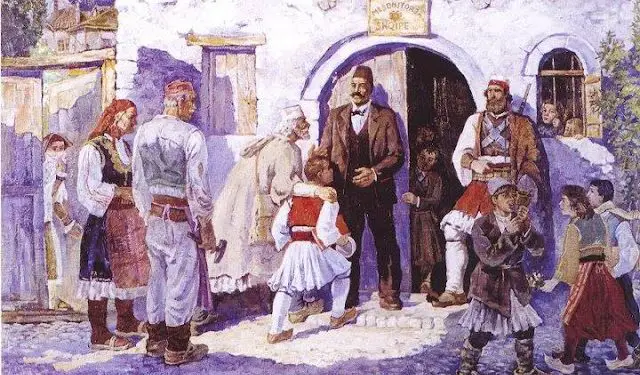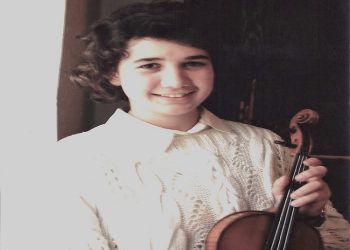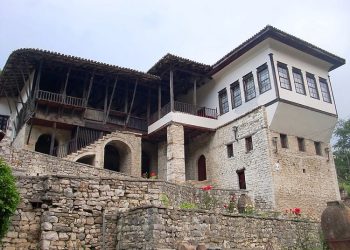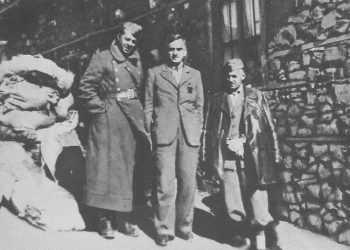From Kostandin Mosko
Memorie.al / We find Koço Sotir sometimes with the name “Koto”, sometimes with the name “Kostandin” and sometimes with the name “Koço Shqiptari”, a name given to him by his renaissance friends, for his dedication to the national cause and his activity densely patriotic. He is the older brother of Pandeli Sotiri, the director of the First Albanian School, which was opened in Korça on March 7, 1887. The opening of this school was a great event and victory for the entire Albanian national patriotic movement, because this was a legal school. Until then, teaching in the Albanian language was done secretly because the Ottoman invaders had forbidden it. Our great poet of the National Renaissance, Naim Frashëri, would write about this event:
“You river, my Korç’o flower,
Leave your friends behind!
Like the brave in front of the sule.
Let’s borrow it for life…”!
At the foundation of this achievement is the work and efforts of the two Sotiri brothers. About Pandeli Sotiri, it has been talked about, maybe not as much as it should be, while about his brother, Koto Sotiri, it has been talked about a little or it has been completely forgotten. The patriotic activity of the Sotiri brothers cannot be separated from each other.
They shouldered or supported brother and brother, in their Enlightenment ideals for the Albanian nation, not only with a pen, with their enlightened minds, but also with a rifle, when it was necessary, just like the brothers “Frashëri”, “Topulli” and many other notable renaissance.
Koto Sotiri was born in 1840 in the village of Selckë, Gjirokastër. Both brothers were orphaned as children after their father was reportedly killed in a gunfight with local feudal lords. Under these conditions, their uncle, who lived in Vienna, Austria, took care of them and even educated them. Kotua finished high school for law while Pandeliu for medicine. After graduation, they worked for a long time in the Austro-Hungarian administration.
In many writings and encyclopedias, it is said that; Pandeli Sotiri was Koto Hoxhi’s student. This is not possible because the ‘Normal’ School of Qestorati was opened in 1873, when the Sotiri brothers had finished high school and had gone to work. The Sotiri brothers learned how to write Albanian in the 5-year-old primary school in their village, because from that time onwards, the Albanian language was also secretly taught in this school.
Those were the years when every Albanian patriot had to contribute to his country, so around the 1870s, the two brothers left Vienna and went to Istanbul, for a patriotic and patriotic mission. Aware of the dangers, they defied the official Ottoman authorities and the feverish Shoven activity of our neighbors with their activity.
The two Sotiri brothers were among the first initiators of the establishment of the “Shqip Printing Society”, among the 27 members who founded this society in Istanbul in 1879. They also contributed to the formatting of the Istanbul Alphabet. It is also said that they were active members of the “Albanian Union of Prizren”.
After a dense patriotic activity, together with Jani Vreto, in the organization of the Bucharest – Istanbul – Egypt patriotic societies, they also secured the income from the Albanians of Vienna, to buy the Bucharest printing house, where of course the Sotiri brothers were among the main ones.
In this printing house, the first textbooks were published with the Istanbul alphabet. Meanwhile, Pandeliu together with Petro Poga, in 1884, with the permission of the High Gate, published the magazine “Drita” (later “Knowledge”) which contributed to the awakening of national consciousness.
Under these conditions, the time had come for the Sotiri brothers to secure a permit from the High Gate, for the opening of Albanian schools. A primer was sent to Sultan Abdyl-Hamit, who expressed his love for the Albanian language, but then, as is said, he changed his mind. However, Pandeliu secured two permits, one in his name and one for his brother, Koto Sotir.
In 1887, the two Sotiri brothers, with 150 primers, surprisingly hidden from customs, set off for Korça, with the mission to open the “First Albanian School” supported by many other patriots. All were armed.
Kotua and Risto Vodica ensured the smooth running of Mësonjtore, with director Pandeliu. In addition to being a teacher, Kotua, together with his friends, made propaganda in Korça families, so that their children attend the Albanian school. As a result, many children left the Turkish, Greek and Romanian schools and joined the Albanian school.
When they thought that the work at the Korça School was over, the time had come for Kotua to open his own school, based on the permission they had received from the Sultan. So a week later, he opened the “First Albanian Teacher” in Pogradec. From this time the brothers were separated. Pandeliu then, as is known, was isolated in Istanbul, where he met his tragic end, while Kotua persistently continued his mission, for the opening of Albanian Teachers.
Using the permits granted by the High Gate, he became active in opening many other Albanian schools, in Pogradec and Korça, but also in Macedonia. Moving through these places, in addition to opening schools, he also distributed Albanian literature, religious literature, as well as the Albanian Gospel of Kristoforidhi, cursed by chauvinist propaganda at that time.
According to Prof. Dr. Musa Krajes, “For this patriotic activity, Koto Sotiri was sentenced by the High Gate to five years in prison and was sent to serve his sentence in the prison of Manastir. After leaving prison, not only old age but also poverty came to Koto.
He died in misery in 1909, in the poor hospital of this city, where his grave should be. The press of the time, such as “Drita” of Manastir, “Drita” of Sofia, etc., wrote a lot at that time about the death of this martyr of the Albanian language.
They have reflected the hard work of this honest mother. The newspaper “Korça” (1909) would write about the sacrifices and persecutions of Koto Sotiri, about the brothers who initiated the opening of the Albanian School, “History will mention them in golden letters”. (M. Kraja; “Sons of Lunxheria for Albanian Education”, Tirana 2002)
No matter how many years pass, no matter how much the activity of the “Sotiri” brothers is covered with dust, it shines like a diamond in the foundations of the Albanian nation. Their patriotic activity should be appreciated by the responsible structures of the Albanian state, because it is inspiring for today’s generations and those to come. /Memorie.al




